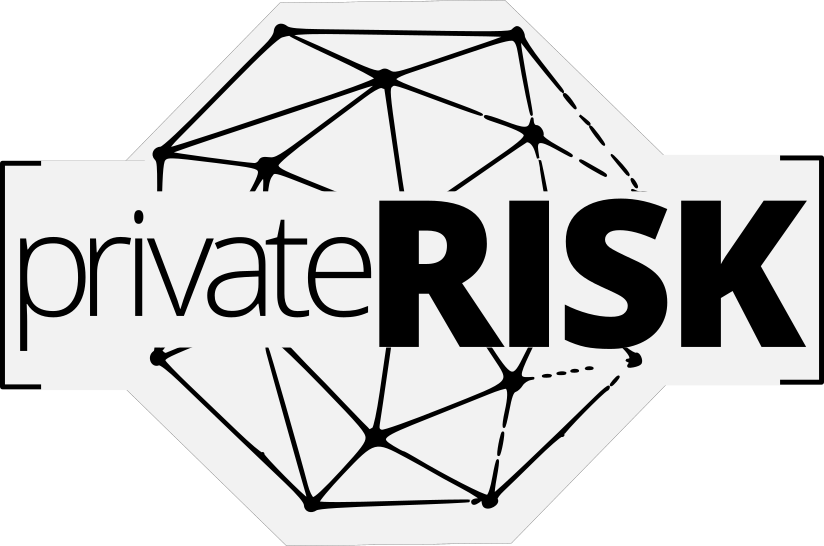Liability Planning: A Guide to Protecting Legacies
How do I prevent getting sued? What is the best way to protect my assets? Do I have enough liability insurance?
Developing a sound risk management strategy and a crisis response plan will help protect your lifestyle and legacy. At privateRISK, we have crafted the definitive guide to planning your liability strategy and mitigating your exposure to litigation.
While every family needs a sound liability strategy, including personal liability and an umbrella policy, these guides are specifically designed for family offices & enterprising individuals, athletes, entertainers, politicians, and public figures.

privateRISK: LEARN ALL YOU NEED ABOUT LIABILITY RISK MANAGEMENT
ADDITIONAL CHAPTERS IN OUR COMPLETE GUIDE
Private Family Liability Risk Analysis
Comprehensive Liability Planning Guide
This guide outlines the basic tenants of liability planning, including understanding how net worth, real estate, business holdings, and public visibility affect your exposure to risk. Through reading this guide, you will understand how your are exposed, how to limit that exposure, and what to do in the event of a crisis scenario.
How Do I Plan for my Liability Exposure?
Understanding how to assess exposure to liability and determine the appropriate limit of liability insurance is the key to preventing unforeseen negative liquidity events. This involves analyzing exposures such as real estate management, automobile or watercraft operation, aviation exposure, directorships & outside board seats, foundations & asset deployment, and employee risk.
Liability Strategy & Umbrella Liability Limits
The first question often asked when developing a liability management strategy is: “how much umbrella liability do I need?”. Most persons who have engaged in prior planning received advice in the form of one, or a few, misnomers–
Insure for your total net worthInsure for X times your net worthInsure for the value of your liquid assets
The problem with these methods is that they attempt to find a mathematical solution for a question whose answer is more art than science. In this guide, we will tackle all aspects of liability planning and demonstrate the best way to calculate your umbrella liability limit.
How Do I Determine My Excess Liability Limit?
When determining the correct limit of liability insurance, your net worth is a great place to begin the conversation. From here you need to determine your exposures and your appetite for risk retention. Areas to discuss include:
- Total Net Worth
- Assets Held Outside of Personal Balance Sheet
- Ownership Entities such as Trusts (QPRT, REIT, GST, etc), LLCs, LPs,
- Usage of Property
- Public Visibility
- Philanthropic Endeavors (Charity Work / Volunteerism)
- Outside Directorships or Board Work
- Personal and Professional Overlap
- Domestic Employees
- Aviation or Watercraft Exposures
- Overall Lifestyle
Many of these will be part of your general personal risk review conversation, including reviewing property insurance. However, the key to liability planning is mitigating the potential for loss. Assuring that all assets have proper liability coverage means that legal defense coverage will always trigger in the event of a loss.
How Does Net Worth Affect My Liability?
The wealthy have never been more of a target for liability suits than in the modern era. Unfortunately, the class divide in America continues to deepen, causing an increase in suits where litigation may not have been previously brought, suits with punitive damage requests, and of course allegations which may be baseless but request large sums.
When beginning your liability planning, there are some universal truths to reflect upon:
- your success can make you a target but that does not mean you should live afraid
- you should not be embarrassed by your wealth but it is prudent to shelter it as much as possible
- proactively planning can limit your exposure to liability litigation or loss
- if involved in a liability suit you will disagree with many of the facts portrayed by the plaintiff
More wealth does not necessarily equal more exposure to loss. However, once you break the threshold of being considered “wealthy” in the court of public opinion, you do have an additional need for a personal risk management strategy and additional limits of umbrella coverage.
How Does Real Estate Affect My Liability
l estate has a large impact on your exposure to risk. You may be responsible for property maintenance, have guests to your home, or even share ownership with another party. The more complex and vast your real estate holdings, the more important it becomes to assure your real estate liability strategy is ironclad. Consider the following:
- Basic Property Maintenance- Assuring that others do not injure themselves on your property can be a full-time job, which is why many families choose to employ contractors or private staff. Removing leaves, clearing snow from walkways, even assuring handrails are secure become important.
- Entertaining- Hosting out-of-town guests, throwing a birthday celebration, or having a party for your business associates can be as risky as it is fun. The potential for bodily injury, host liquor liability, even data breach & security issues prevalent.
- Property Usage- Unique features of homes can lead to additional risk. For example, if you allow neighbors to board horses at your barn, invite guests for a pool party, provide an easement to access a private lake/airstrip, or have a woodworking studio on
- Fractional Ownership- You may share ownership with a family member or business partner, meaning their actions or inaction, related to this property may bring you into a suit.
Legal Liability of Real Estate Owned In Trust, LLC, or Other Entities
No dialogue around real estate liability would be complete without discussing ownership entities. Often, a trust or LLC is formed to limit the personal liability of the individual owners and isolate the exposed assets to just those within the entity. Universally it is accepted that there is a benefit to utilizing a trust or LLC to own property but is this really the case?
State statutes will dictate the exact amount of protection and the rules governing legal liability but there are a few general things to consider:
- A single-member LLC or trust often provides a thin veil against legal liability
- Specifically, with LLCs, the formation does not absolve personal liability and you can be personally liable for actions (or inaction) conducted by the LLC; this can include maintenance of the property
- With correct structuring, your trust & estates plan will limit the assets exposed to litigation
- From an insurance perspective, the addition of the entities to the liability policy is paramount and the only way to assure coverage responds for the entity
How Does My Estate Plan Affect Liability?
At the highest levels, assuring that your assets are insulated by transferring them via trusts or life insurance is prudent. Putting assets into protected classes is also paramount. However, for those unprotected assets or for assets which are transferred from your name, there are additional risks which may arise.
Trusts / LLCs / Other Entities
The most common gap in liability planning is not extending protection to trusts or other entities which hold your assets. While there is a corporate veil which may provide some creditor protection, if you are a single-member LLC that veil will be quite thin and likely be pierced early on in litigation.
View our article for more information on how qualifying and non-qualifying assets may impact your insurance planning. privateRISK Guide to Qualifying & Non-Qualifying Assets.
Stakeholders
Another issue with estate planning is that additional stakeholders may enter the conversation and either require an extension from your insurance or have to adjust their own planning in response. For example, consider an art collection for which ownership is fractured among heirs and gifted in small portions annually. Exposure will lessen for the grantor but increase for the heirs each year.
Additional stakeholders also make planning conversations larger and slower. It is advisable to start your planning journey as early as possible after identifying additional stakeholders who need to be involved.
How Does Overlap Between My Personal & Professional Lives Affect Liability?
Often, high net worth families find an even greater blur between their personal and professional lives. Parties at home may be charity benefits, business associates may be entertained on a private yacht, or clients join in on travel. Understanding which aspect of life is at risk for a certain activity is of the utmost importance.
Entertaining
Often, your friends and business associates are one and the same. If you host them for your company holiday party at your offices, it is pretty clear that the business is liable. However, what if you hold the same party at your home? Your country club? Your yacht?
Home Offices
Having an in-home office to practice your profession is quite common. However, you will need to specifically plan your risk management strategy if you do anything other than “work remotely”. If you invite clients to your home or use your residence as your only office, your insurance strategy needs to be adjusted.
Home Business & Consulting
In retirement, many enterprising families take on consulting roles in addition to board seats. If you are generating income from home as a physician, therapist, consultant, attorney, broker, or other operation you will likely require a commercial and professional liability strategy. This is particularly true if your engagement includes a master services agreement (MSA) with your clients.
Travel
Outside of specific business travel, ultra-high net worth families often find themselves working or taking meetings during extended personal travel periods. Even a few weeks in Dubai could easily involve a day or two of in-person meetings. When switching hats during travel, who bears the risk for bodily injury or property damage?
When traveling, what if your personal assist travels with you? Your au pair? Your best friend who is also a client? What is your response plan if one of them is lost or injured?
What happens if you require evacuation due to political unrest?
How Does My Lifestyle Affect My Liability
Prior to assessing the risks in the overlap between personal and professional “life”, so too is your lifestyle a wildcard in planning. Two persons with the same net worth, operating in the same profession, and at the same age can have two wildly different needs for financial planning and personal insurance.
The Effects Of Behavior On Liability Insurance Planning
Consider two drivers both leaving their golf club driving identical Porsche Panamera Turbos. One enjoyed his steak dinner and drove home. The other shared a bottle of 23-year-old Pappy Van Winkle Family Reserve bourbon with a friend before getting in his car.
The former could certainly be brought into litigation if involved in an accident. Though, assuming he obeyed traffic laws and no driver was seriously injured, the claim should come to an expedient and amicable resolution.
In the latter scenario, alcohol use, a powerful luxury sports car, and leaving a private club while intoxicated may lead to additional consequences if involved in an accident, such as:
- Increased property damage and bodily injury liability
- Fines & penalties
- Additional legal defense costs due to alleged criminal negligence
- Liquor liability suit against the golf club
- Criminal charges (which are not covered by insurance)
- Punitive damages (which may not be covered)
- Familial and business ramifications if criminal charges stick
Keep in mind that these are only a few of the risks in play and that this scenario is only one of many areas which must be addressed when planning to address your private risk.
Risk Planning, Insurance, & Family Governance
It is scenarios like the example above which best illustrate why private risk planning is best handled at the family governance level. Often times, it is the difficult conversations around behavior modification which are more impactful for protecting a family than insurances alone.
Public Persona & Perception
Common sense dictates that leading a flashy lifestyle or having a public brand will change how you are perceived in the public eye. Public perception is a key factor in determining the potential for litigation, particularly of frivolous and high-valued suits.
Not only can your lifestyle increase the chances of a suit being brought against your family but you may require a crisis response plan to mitigate damage to your reputation.
It is not just “celebrities” who can suffer loss if they are vilified in the court of public opinion. How will your family respond should a prominent member be brought into a suit or have criminal allegations brought against him/her? How will this affect your family office or a closely held business?
Directors & Officers Mini-Guide
Directors & Officers liability refers to the potential exposure to litigation which can arise due to the decisions and actions taken by a decision-maker, primarily in the C-Suite, Board, or executive leadership of an organization
In today’s litigious climate, shareholders and stakeholders are ready and willing to bring suit against leadership if they feel they have suffered a financial loss or setback in a strategic plan.
How Do I Limit My Liability Exposure As A Director?
Having a deep understanding of the organization’s mission, strategic plan, and expectations of its leadership will aid in minimizing your overall risk exposure. However, litigation can still arise for a variety of reasons including financial loss, bodily injury, or wrongful death.
What If Mitigating My D&O Exposure Is Not Enough?
A thorough review of the indemnity agreements and directors & officers insurance provided to you by the organization should be conducted. After review, it may still be possible that you need a separate D&O policy to assure your personal assets are not affected by litigation or loss.
Our Complete Guide To Directors & Officers Risk will provide additional insights to assist in your planning.

Complete D&O Guide
Read our full guide to directors & officers risk for private individuals.

Complete EPLI Guide
Read our full guide to employment practices risk for private individuals.
Understanding Employment PracticeS Liability
Domestic workers help manage daily tasks, watch the children, keep the home, and manage the property. However, for all of the ways they make life easier, they also expose you and your family to additional risk. This guide will delve into the ways to prepare for and mitigate the liability you make incur.
What Are The Issues With Having A Domestic Worker
Whether an omnipotent personal assistant, talented personal chef, or indispensable housekeeper, there are risks to your personal safety, security, and legacy by inviting a worker into your personal life. Most specifically, their safety and well-being is now your responsibility and any injury, wrongful termination, or ill management of their position can lead to an uninsured loss and litigation–unless you have planned accordingly.
Are My Domestic Workers Independent Contractors
While it is true that contracts with independent contractors will generally hold you harmless for employment practices or workers compensation liability, actually setting up that relationship so it passes the legal litmus test takes finesse and diligence.
Complete EPLI Guide
Read our full guide to employment practices risk for private individuals.
Further Reading About Liability & Insurance
This guide and the different chapters within it will help get you and your advisory team well educated on the risks which affect the financial well-being of private families. In order to have the most diligent planning conversations, below we have highlighted a few resources which we recommend:
- Qualified vs. Non-Qualified Assets – learn about which assets can be part of
litigation - Directors & Officers Risk – a deep dive into the risks associated with your participation on for-profit and not-for-profit boards
- Employment Practices Liability – how to manage employee risk and assure that your personal assets are protected from litigation
- Insurance Carrier Profiles –
review which markets provide global liability, unlimited legal defense, and reputation management protections
Be the first to KNOW
Get Breaking News, Trends, and Advice
privateRISK.org
